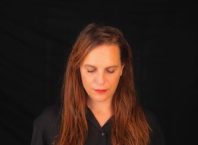2013 is the bicentennial of Giuseppe Verdi’s birth: it’s quite fitting that after a year away, the Israeli Opera Festival at Masada will be returning next June with a staging of the composer’s best loved opera, La Traviata as the centerpiece of the 2014 Opera at Masada season.
Setting is central to the grandeur and opulence of opera, and there aren’t many venues that can match the imposing majesty of the monolith by the Dead Sea. Premiered at La Fenice, in Venice, in 1853 and based on the bestselling La Dame aux Camelias by Alexandre Dumas fils, La Traviata is a typically melodramatic account of unrequited love, misunderstandings and tragedy, leavened in this case by social pressures and what one might refer to politely as questions of reputation. Curiously, the original production was set not in the Paris of the age, but rather circa 1700; the production for Masada, steered by the acclaimed Polish director Michal Znaniecki takes a cue from this by creating an elaborate but imminently suitable mise-en-scene of a Paris of the future, distant and abandoned and by desert.

As in the past, the production – which will play on the nights of the 12/14/16 & 17 June 2014 – will be conducted by the maestro Daniel Oren; the featured principals are the noted Romanian soprano Elena Mosuc and Aurelia Florian (who debuted, as Verdi’s Luisa Miller, at the Tel Aviv Opera House earlier this year) in the role of the consumptive Violetta, and Spanish tenor Celso Albelo and Jean-Francois Borras (who has recently played at both Covent Garden and the Theatre de Champs Elysee) as the young nobleman and lover Alfredo.
A lot of work has been put into turning Masada into a destination venue for both opera lovers and the culturally curious, as one might discern from the high profile tourism campaign being launched by the Ministry of Tourism and Arkia Airlines in conjunction with the festival. But it is firstly a celebration of culture, a point tacitly acknowledged in the expanded programme for 2014. At Masada, in addition to La Traviata there will also be an evening with the Israeli Philharmonic Orchestra, on the 15.6, and a performance by the noted Idan Raichal Project on 13.6; but also, for the first time, the Festival will extend beyond the desert, with a mini-festival of Mozart amidst the fortifications of the Old City of Akko: two performances of Don Giovanni, on 19 & 21.6 (both preceded by the intriguingly described Crusader Banquet), a single performance of Mozart’s Requiem on 20.6 and a special performance of The Magic Flute, for children, on the morning of 21.6.
There’s always the question: how does one respect the grandeur and ambition of these productions, and still remain profitable? Hanna Munitz, the general director of the Israeli Opera, points out that it isn’t purely a matter of profit; breaking even financially is the primary objective. However, she continues, there are important benefits that extend beyond profit margins. The Festival brings visitors to the region from within the country and beyond, and creates hundreds of jobs in local communities.
But most important, one might argue, are the cultural benefits of bringing the arts to a wider audience. Performances from the festival are screened, via live telecast, to audiences across the country, and schoolchildren from the local Tamar Region are given free tickets to the performances, as are the up to 15,000 local residents who attend the full dress rehearsals. Perhaps they’ll all get to sing Happy Birthday to Mr Verdi.
Information and tickets are available on the Israeli Opera website.





